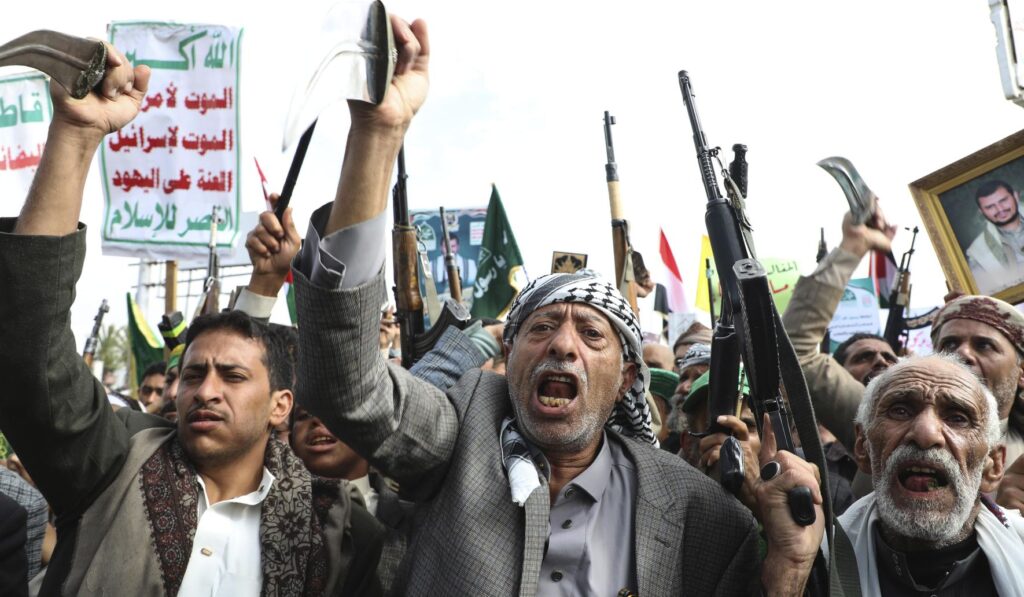Yemen’s Houthi rebels are signaling they’ve stopped their attacks against Israel and shipping in the Red Sea as a shaky ceasefire holds in the Gaza Strip.
The Houthis’ announcement that they are halting strikes in the Red Sea feels like a pause, not an ending. Gulf shipping, global trade lanes, and naval patrols have all been on edge since the group began targeting vessels tied to Israel or transiting nearby waters. That tension reflected broader regional fault lines, with Tehran’s influence and proxy networks casting a long shadow over maritime security.
For Washington and allied navies, the risk to merchant shipping was immediate and tangible, forcing naval escorts and rerouted convoys to avoid choke points. U.S. and partner forces stepped up patrols to deter missile and drone attacks, and commercial insurers raised premiums on Red Sea routes. The costs were more than financial; they tested the resolve of governments to protect freedom of the seas.
Behind the surface, the Houthis’ actions were part of a wider reaction to the fighting in Gaza, where a fragile ceasefire had just taken hold. That truce reduced the headline violence for now, but it also created room for other actors to reposition and re-evaluate their tactics. The ceasefire’s fragility means any misstep or miscalculation could quickly reignite hostilities beyond Gaza’s borders.
Republican policy instincts see this in stark terms: bad behavior must be met with clear consequences and decisive deterrence. Allowing proxies to pick off shipping or harass allies invites escalation and normalizes attacks on global commerce. The answer, from that perspective, is to combine tightened maritime security with economic pressure on state sponsors who enable these groups.
Iran remains the critical variable. Its backing of Houthi capacities—training, arms transfers, and operational guidance—turned a local insurgency into a regional menace. Even if the Houthis claim a pause, the flow of materiel and know-how does not vanish overnight. Facing that reality requires persistent intelligence and coordinated international pressure to choke off the assistance routes.
The humanitarian dynamics in Gaza complicate any military-first narrative. Civilians trapped in the fighting and aid deliveries squeezed by insecurity give opponents leverage and inflame public opinion. Republicans emphasize the need for secure corridors, robust monitoring, and humanitarian aid that reaches people directly, while still insisting on firm action against those who exploit suffering to expand their reach.
Maritime commerce will likely see temporary relief, but shipping interests and regional capitals are wary of a repeat. Companies will keep contingency plans ready, and navies will sustain presence patterns to ensure swift reaction times. The long-term solution has to address the upstream sponsors and the political disputes that feed proxy violence across the Middle East.
On the diplomatic front, partners are juggling a practical balance: publicly support Israel and the ceasefire that reduces immediate civilian casualties, while quietly coordinating measures to curb Iran’s proxy network. That mix of public rhetoric and private pressure is familiar, but it must be maintained consistently if deterrence is to work. Weakness or mixed signals invite more aggression, not less.
Policymakers who want lasting calm should focus on measurable outcomes: stop the arms flows, secure shipping lanes, and enforce accountability for attacks. Military presence should be backed by sanctions and interdictions that make proxy operations costly. Meanwhile, aid and reconstruction in Gaza need to be protected from diversion, ensuring help goes to civilians and not to militant consolidation.
The current lull is an opportunity to reset tactics and escalate pressure on those who profit from instability. If states and coalitions use this moment to harden deterrence and starve proxy networks of resources, the pause could become a stepping stone to greater security. If they do not, the region will be back where it began—and the price will be paid on the open sea and by the next generation of civilians caught in the crossfire.



